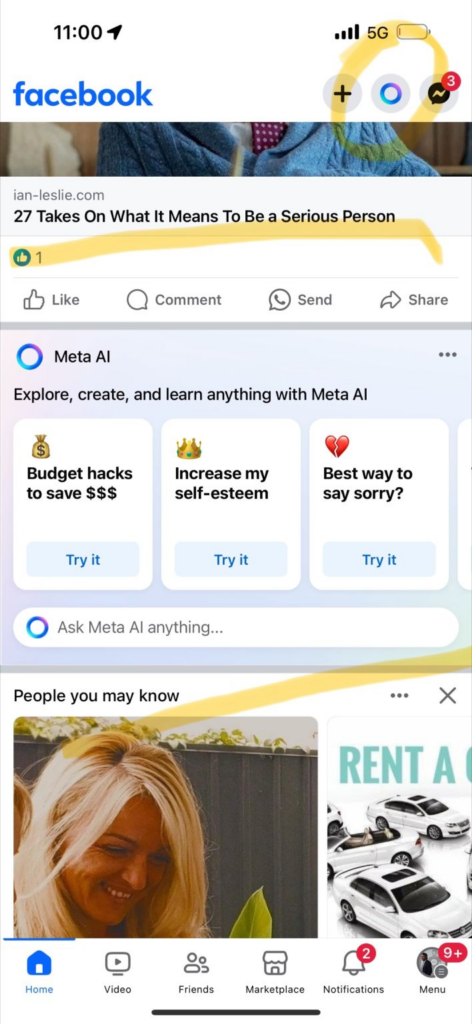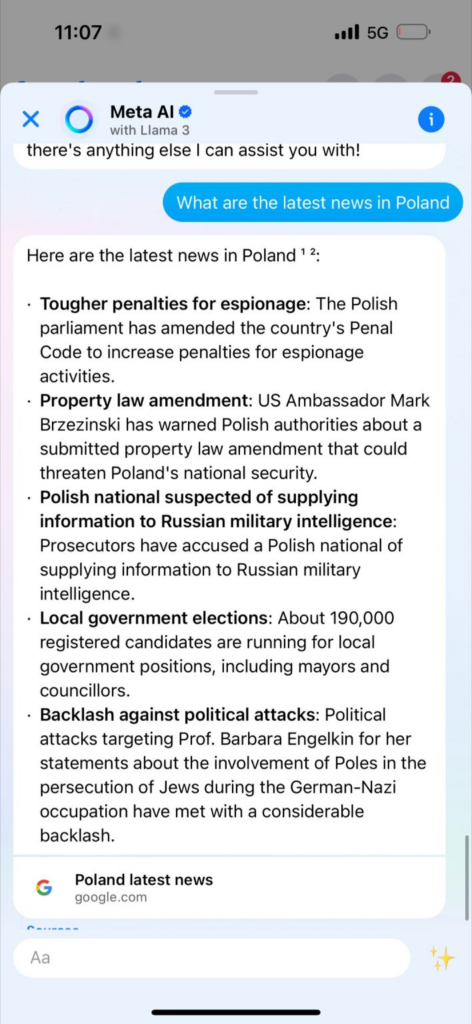At a time when Google’s Gemini and Open AI’s ChatGPT are charging premium subscriptions for the full use of their AI, last Thursday’s launch of Meta’s Llama 3 is a game changer not just in terms of the quality of Meta’s AI but also its cost – nothing. Jovan Protic, VP of the Board at Ringier Axel Springer and an AI fellow, is impressed but only up to a point…(republished from LinkedIn with kind permission).
I’ve often heard that large empires don’t fall because their challengers become extremely strong, but because they become either arrogant or simply “sleepy.”
Observing how Facebook (now Meta) responds to various disruptive challengers, I’m impressed by the agility of such a large company. However, I’m also shocked by their arrogance.
Speaking of agility, here’s why I find it impressive: When WhatsApp challenged their messaging, they acquired it. When Instagram emerged, they did the same. When Snapchat introduced Snaps, Facebook quickly launched Instagram Stories. Following TikTok’s rise with vertical videos, Facebook introduced Reels.
Today, I discovered Meta’s AI chatbot in my Messenger and Facebook apps, which incorporates elements that very much resemble those of ChatGPT, Perplexity, DALL-E, and Midjourney. Once again, they’ve adapted swiftly and the product works well.


Despite accusations of being late to innovate, Meta is not behind; it commands a global user base of 3.8 billion, compared to ChatGPT’s 180 million meaning that there is still, at least 3.62 billion people who don’t use Chat GPT and are visiting Metas products. Some criticize this as mere imitation, but in business, aren’t we all tasked with providing the best user experience and products? It is our duty to ensure that our users receive the latest product and technological solutions and unless IP protected bring it to them as fast as we can.
Summarizing, Meta is certainly not sleepy, quite the contrary. Many of us could learn from them on how to grow your product and be agile.
But what about being arrogant? Well, on that front, I believe they still have much to learn.
Alongside the introduction of Meta AI into their main apps, they also launched a feature for news summaries, powered by Google and Bing. This move suggests a strategy: they use content from millions of creators without permission or compensation to create their Llama model (that pushes Meta AI), assuming that this approach is easier to defend. However, when it comes to news summaries, which involve tricky copyright issues, they opt for the safety of partnering with Google and Microsoft.
This approach is clever but also displays arrogance. For a sustainable ecosystem, we need a credible and trusted content framework. Big tech should act responsibly and share a portion of the large percent of global ad revenue with the content creators who fuel the ecosystem. This is crucial not only for the platforms and publishers but for humanity as a whole.
Ignoring these responsibilities puts the real interests of consumers last, depriving publishers of both content and the chance to earn from it.
Whether Facebook will learn from these lessons or be penalized for their arrogance remains to be seen.
How do you see it?
Jovan Protic
COO and VP of The Management Board, Ringier Axel Springer Media


